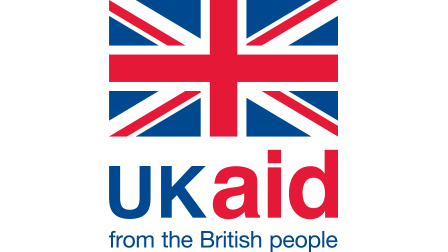Trade, Environment and Climate
The trade and environment nexus is a dynamic intersection for IISD where trade policy solutions are explored as a way to help tackle environmental challenges, including climate change, deforestation, marine plastic waste, biodiversity loss, and overexploitation of marine resources.
Our work on trade and environment has a long history, dating back to the earliest years of the organization. Our approach seeks to foster connections between the trade and environment communities, generate new ideas, and support policy-makers as they design environmentally friendly trade policies. But given the multistakeholder nature of these issues, we also go beyond policy-makers, engaging directly with academics, civil society, the private sector, and practitioners.
Engagement
- World Trade Organization: We actively contribute to discussions among WTO Members on trade and environment issues, both during the annual WTO Trade and Environment Week and throughout the year. This includes input to negotiating processes, as well as non-negotiating work, such as how to incorporate sustainability considerations into aid directed at trade-related infrastructure.
- Multilateral Environmental Agreements: As part of the Geneva Environment Network, we play an active role in the environmental policy community, bringing a trade lens to discussions on plastic waste pollution and how to ensure coherence between multilateral environmental agreements (MEAs) and the trading system.
- NAP Global Network: We are also working with climate policy-makers as they develop their national adaptation plans (NAPs) so they can see which trade policy options can support these efforts, given the networks we have fostered at the country level as the secretariat for the NAP Global Network.
Research
- Regional Developments: We regularly analyze the environmental provisions of regional trade agreements, looking to unpack what they mean from both legal and practical perspectives and advise policy-makers accordingly. We developed a sustainability toolkit for trade negotiators with the United Nations Environment Programme (UNEP) designed to help trade and investment agreement negotiators as they seek to make new accords line up with the UN’s 2030 Agenda for Sustainable Development.
- Policy-maker Handbooks: Together with UNEP, we developed and regularly update a joint Trade and Green Economy handbook, which was written for policy-makers, practitioners, and the wider public.
- Voluntary Standards: Our work on sustainability standards under the State of Sustainability Initiatives has examined how the lessons from these voluntary schemes can inform trade and public procurement policy.
Reporting and Analysis
- News: Our reporting on the SDG Knowledge Hub has a dedicated section on trade, with new articles published every week that review the trade and environment nexus.
- Analysis: Our analytical commentaries in our flagship trade magazine, the Trade and Sustainability Review, and our joint webinar series with the University of Geneva’s Faculty of Law are spaces we have developed for exploring new ideas, developing an ever-wider community of practice, and encouraging a richer conversation on these vital issues.
Publications
Trade-Related Policy Measures to Reduce Plastic Pollution: Building on the state of play
This report looks at the trade-related plastic pollution-reduction measures notified by World Trade Organization (WTO) members in order to provide inspiration for further actions and international cooperation options.
Border Carbon Adjustments: Priorities for international cooperation
This IISD policy brief looks into border carbon adjustment design elements that are priorities for international cooperation, as well as the possible venues, formats, and shapes that such a discussion might take.
Border Carbon Adjustments: Pivotal design choices for policy-makers
This policy brief covers the pivotal choices in the design of border carbon adjustments, aiming to provide useful insights to policy-makers and set the ground for the broader discussions about the best practices.
Background Note on Fossil Fuel Subsidy Reform
As fossil fuel subsidies are expected to swell following rapidly rising energy prices, IISD offers a background note on the rationale and international initiatives for reforming fossil fuel subsidies.
Project team

Nathalie Bernasconi-Osterwalder
Vice-President, Global Strategies and Managing Director, Europe

Alice Tipping
Director, Trade and Sustainable Development

Ieva Baršauskaitė
Senior Policy Advisor

Cristina Larrea
Lead II, Sustainability Standards

Steffany Bermúdez
Policy Advisor I

Vivek Voora
Senior Associate
Funded by
Latest
You might also be interested in
Fisheries Subsidies
IISD is focused on supporting the World Trade Organization negotiations to end harmful fisheries subsidies.
Toward More Equitable and Sustainable Trade in Food and Agriculture
IISD’s work on trade in food and farm goods seeks to improve the extent to which trade policy supports sustainable development outcomes and expand the space for informed discussion among a wider set of policy actors.
Trade Knowledge Sharing
The nexus between trade and sustainable development is complex and multi-faceted, and ensuring that the conversation around these issues is active, engaged, and informed is vital.


